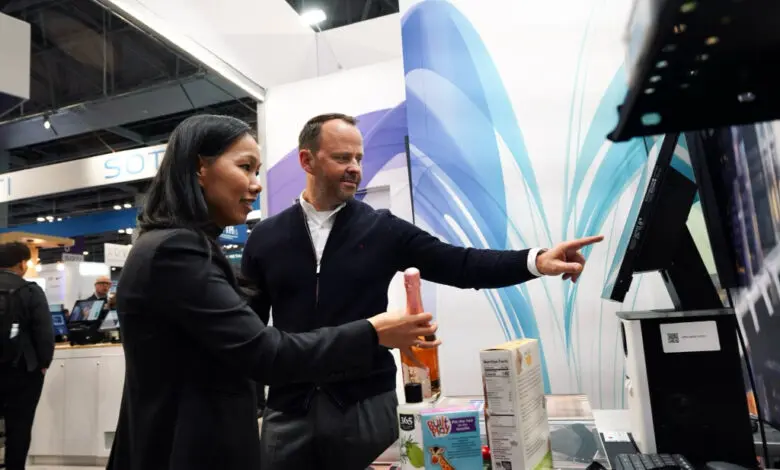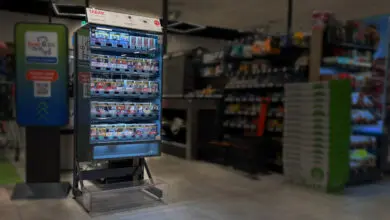Guest Feature: New ways to prevent fraud at self-checkouts

The rise of self-checkout systems has transformed the retail landscape, with two-thirds of consumers under 35 now preferring this method. However, as usage increases, so does theft, leading to significant loss and inventory discrepancies for retailers. Studies indicate that even generally honest customers are prone to exploiting self-checkouts (SCOs). According to research published in The Grocer, only 63 per cent of surveyed shoppers claimed they had never cheated at an SCO – a statistic that underscores the urgency for retailers to act.
Retailers are exploring various strategies to combat SCO fraud, from increasing staff presence to reducing the number of SCOs. However, artificial intelligence (AI) and computer vision technologies are emerging as cost-effective and efficient solutions. These innovations offer real-time fraud detection capabilities and help prevent theft without disrupting the convenience that customers value.
At the heart of AI-driven fraud prevention lies visual deep learning (VDL), a disruptive technology that powers next-generation security solutions. Compared to earlier AI models, VDL offers enhanced cost efficiency, energy savings, and stronger data protection. Particularly promising is Edge Deep Learning AI, which allows for real-time processing with minimal hardware requirements. Companies developing these solutions must possess specialized expertise in AI software development, model compression, embedded systems, and edge hardware integration.
Video snippets improve staff oversight
Once an alert is triggered, the consumer can be prompted to self-correct the issue. If necessary, a staff member is made aware of the situation and receives a short video snippet showing exactly why the alarm was raised. Both the consumer and staff member can view the video to identify the specific item in question, allowing the issue to be fixed immediately. This approach reduces the need to send video snippets to staff every time, making the process less staff-intensive and more efficient by giving the consumer the chance to self-correct before staff intervention is required.
How AI Detects Fraud in Real Time
VDL-based SCO security systems address multiple fraud tactics:
- Hand Movement Analysis: Leading AI solutions monitor hand movements in real time, detecting whether an item is correctly scanned or deliberately bypassed.
- Barcode Validation: If a barcode is obscured or a fraudulent barcode is used, the system identifies the mismatch and triggers an alert.
- High Detection Accuracy: The most advanced systems now boast fraud detection rates as high as 99 per cent, significantly reducing false alarms.
As this video explains, these innovations offer real-time fraud detection capabilities and help prevent theft without disrupting the convenience that customers value..
Another challenge at SCOs is the sale of age-restricted items. Traditionally, staff must manually verify a customer’s age, causing delays and cashier interventions. However, AI-driven age verification technology can pre-screen customers, flagging only those who may require ID checks. This reduces staff workload and speeds up transactions, enhancing both security and customer convenience.
Preventing mislabelling of non-barcoded items
A common challenge at SCOs involves fraudulent selection of fresh produce, such as selecting a cheaper item for a more expensive fruit or vegetable. Advanced AI solutions can now visually recognize produce, even when packaged in transparent bags, and eliminate non-applicable options. This helps customers quickly and accurately select the right produce, speeding up the selection process and enhancing customer satisfaction by reducing confusion and errors during checkout. A common form of SCO fraud involves mislabelling fresh produce – for instance, selecting a cheaper item for an expensive fruit or vegetable. Advanced AI solutions can now visually recognize produce, even when packaged in transparent bags, eliminating opportunities for intentional or accidental misentries.
Beyond immediate fraud detection, AI-powered SCO systems serve as a deterrent. When customers see that theft attempts are swiftly flagged, the risk of getting caught discourages further misuse. This ‘psychological barrier’ can significantly reduce theft incidents over time.
A Profitable and Secure Future for SCOs
With visual deep learning now at market maturity, retailers have access to powerful tools for fraud prevention, operational efficiency, and enhanced customer experience. The GK Vision system from GK Software is one example of this technology. These systems quickly pay for themselves by reducing inventory losses while maintaining the convenience that customers expect. By investing in AI-driven fraud prevention, retailers can ensure that SCOs remain a secure, profitable, and customer-friendly checkout option.
Practical Considerations for Retailers
Retailers considering AI-based SCO fraud prevention should evaluate factors beyond detection rates:
- Cost and Hardware Requirements: Modern solutions require only a small commercial camera and a compact edge computer, eliminating the need for cloud hosting, Wi-Fi, or expensive additional infrastructure.
- Ease of Integration: Leading systems can be installed within days, seamlessly integrating with existing SCO setups.
- Protecting Existing SCO Investments: To maximize ROI, retailers should prioritize retrofit-friendly solutions that enhance security without requiring entirely new SCO hardware.





